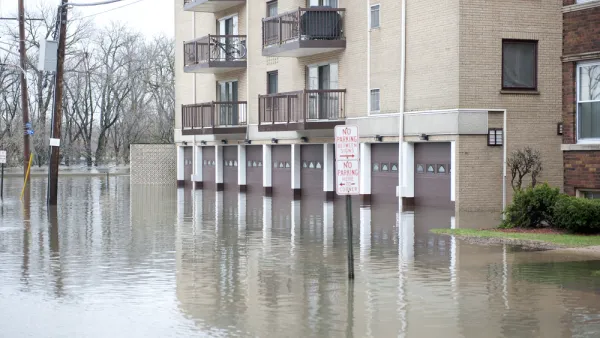"Building Climate Resilience in Cities" was developed by global insurers and non profits to offer tools and technical assistance to urban areas facing development changes in response to climate change risks.
In the wake of Super Typhoon Haiyan and the 1 year anniversary of Superstorm Hurricane Sandy, global metropolises are struggling to end the climate change debate and focus on climate change solutions. In a unique overlap of interest,s non profits and global insurance agencies have teamed together to create a framework for assessing risk which if implemented, could save lives and dollars.
The new report provides a scaled prioritization list, a strategic planning framework, and a toolkit for local communities to host workshops with multiple stakeholders in their redevelopment process. The report aims to find a common global method for evaluating and addressing climate risk in response to the increasing frequency of catastrophic storms. As megalopolises are frequently located in coastal areas and represent ties to international communities, this framework addresses the multinational impact of and response to storms in urban economic centers.
Insurers have a role to play alongside planners and policy makers by setting the rates which determine which, if any, populations can live in coastal areas. Ceres, an American NGO, recognized this role and took the initiative to expand the alliance of stakeholders in climate change risk assessment and management. This global initiative is the first step in aligning global with local policy for adaptation planning.
FULL STORY: Insurers, non-profits offer new resources on building resilient cities in face of climate risks

National Parks Layoffs Will Cause Communities to Lose Billions
Thousands of essential park workers were laid off this week, just before the busy spring break season.

Retro-silient?: America’s First “Eco-burb,” The Woodlands Turns 50
A master-planned community north of Houston offers lessons on green infrastructure and resilient design, but falls short of its founder’s lofty affordability and walkability goals.

Delivering for America Plan Will Downgrade Mail Service in at Least 49.5 Percent of Zip Codes
Republican and Democrat lawmakers criticize the plan for its disproportionate negative impact on rural communities.

Test News Post 1
This is a summary

Test News Headline 46
Test for the image on the front page.

Balancing Bombs and Butterflies: How the National Guard Protects a Rare Species
The National Guard at Fort Indiantown Gap uses GIS technology and land management strategies to balance military training with conservation efforts, ensuring the survival of the rare eastern regal fritillary butterfly.
Urban Design for Planners 1: Software Tools
This six-course series explores essential urban design concepts using open source software and equips planners with the tools they need to participate fully in the urban design process.
Planning for Universal Design
Learn the tools for implementing Universal Design in planning regulations.
EMC Planning Group, Inc.
Planetizen
Planetizen
Mpact (formerly Rail~Volution)
Great Falls Development Authority, Inc.
HUDs Office of Policy Development and Research
NYU Wagner Graduate School of Public Service





























